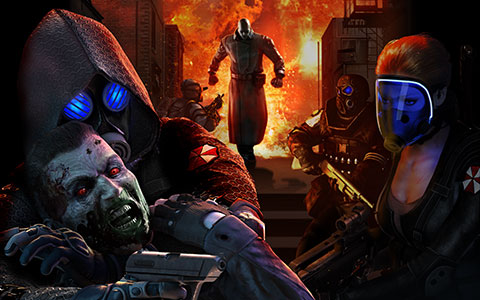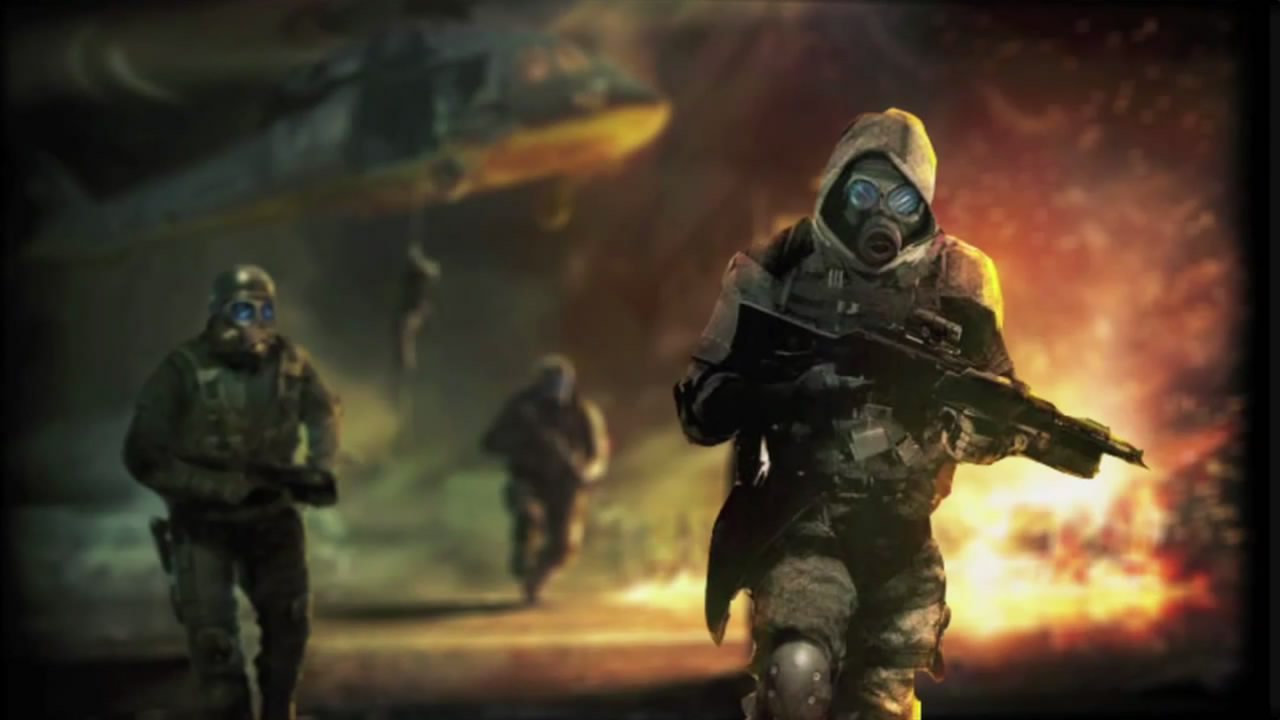Extra Credits on Penny Arcade TV is all about video game design, but sometimes their discussions veer into territory that applies to other media, and other times its just generally fascinating and thoughtful shows. This particular episode on propaganda games (both intentional and accidental) is especially interesting.
Check it out here.
In thinking about it, there were two points in the Extra Credits take that I am not sure I agreed with. First, I was amazed at the number of intentional games of such a type out there, but I tend to feel that those products, like the pamphlets, books and videos that accompany them, are usually speaking to the choir. However, the idea of unintentional propaganda was really interesting. On the surface, it seems silly, but on consideration, there's some interesting truth to it.
Take the Royo art I posted below. Royo and others like him have been doing scantily clad female fantasy art for ages, and are more or less typical of stuff I grew up with in my own generation. However, I (and I optmistically would posit most men of my generation) do not inherently feel that this has generated a sense that women must wear fewer clothes to be noticed/successful, at least not as a proper social norm. There are and have always been stronger social pressures at work influencing such beliefs within my generation.
There's a real temptation to suggest that such may not be the case for the current generation of gamers, however. I think it's incorrect, in so far as the show may be confusing the issue of correlation with cause and effect. It may also be confusing what could be a much larger cultural change in normative values and relations between men, women, and how they perceive both themselves and one another. This is a different issue from the idea of a sexual reward/stimulus approach to skimpy female characters in video games right now, which is part of a bigger problem in the video game industry, demonstrating that it has not yet caught on that both women and men play these games, and in increasingly even numbers as time goes by. Should we one day see a Gears of War game where Marcus Phenix (or his descendant) has a
no-shirt flowing hair mod/achievement reward to go along with whatever skimpy female models are offered, then we will be seeing a developer that, while still disingenuously using the "sex sells" theme in the game, has at least aknowledged that sex sells to both genders equally well.
Anyway, the problem of over-sexualization/visual mysoginy in games is not the cause, but a symptom. I think this video misses that point, perhaps because the Extra Credits crew are (like me) prone to optimism. The part that is a real problem in video games is marketing, the so-called "marcom" divisions of these publishers and their willingness to exploit through careful metrics the portion of their audience that is ruled by baser instincts. That in and of itself belies the greater issue that there are plenty of young men out there who are increasingly spending more and more time indoors, playing games with virtual female characters therein, and spending less time actually talking to real women.*
When I think back to the late eighties and early nineties, I recall plenty of friends and cohorts with a fear, animosity, sometimes even outright hatred or disgust toward women. It was all a large component of their innate uncertainty and fear at dealing with the opposite sex, coupled with an inability to rationalize or cope with the instinctive processes in the male psyche, and the prevalent need to have women in our lives that is ultimately part of the biological process of furthering the species, a feature of our chemistry which doesn't give a damn how awkward it makes our artificial human social constructs. In any case, I have to wonder how many of these guys, back in the pre-internet and pre-quasi-photorealistic video game days, would have simply isolated themselves from the world at large, avoided women, and started developing their perspectives on the fairer sex entirely from these carefully tailored artificial stimuli and experiences? What sort of effect would that have had, back then? I think there's a huge test bed for that going on out there in the real world right now, a sort of global skinner box.
Anyway, food for thought. I'm really hoping that by the time my son is old enough to start noticing women, that he's comfortably balanced enough and has a strong appreciation enough for real women as equals that the lurid temptations of video games and the internet are easy enough for him to resist (or better yet, to understand)...FSM knows that even without these things it was hard enough for guys from my generation!
* I could be off base here, though, as admittedly my sample is skewed toward the gamer crowd I hang with, and always has; anecdotally however even the hardcore football jocks and decidedly "normal" guys I have known throughout the years appear to have a bewildering range of antipathy and trepidation (if not disturbing hostility) toward the opposite sex. Again, this is probably a byproduct of necessary biological conditioning or instinct, a residual effect of the need for competitive action through aggression to pass on our genes, manifesting in its traditionally uncomfortable way as we have managed to develop civilized, intellectual culture that transcends our inherent programming, yet unfortunately we're still many decades away from the singularity of proper transhumanism, that will allow us to wipe out such impulses and recode our genes to spec instead of our current only choice of default "factory settings" nature has arbitrarily chosen for us (for better or worse).



